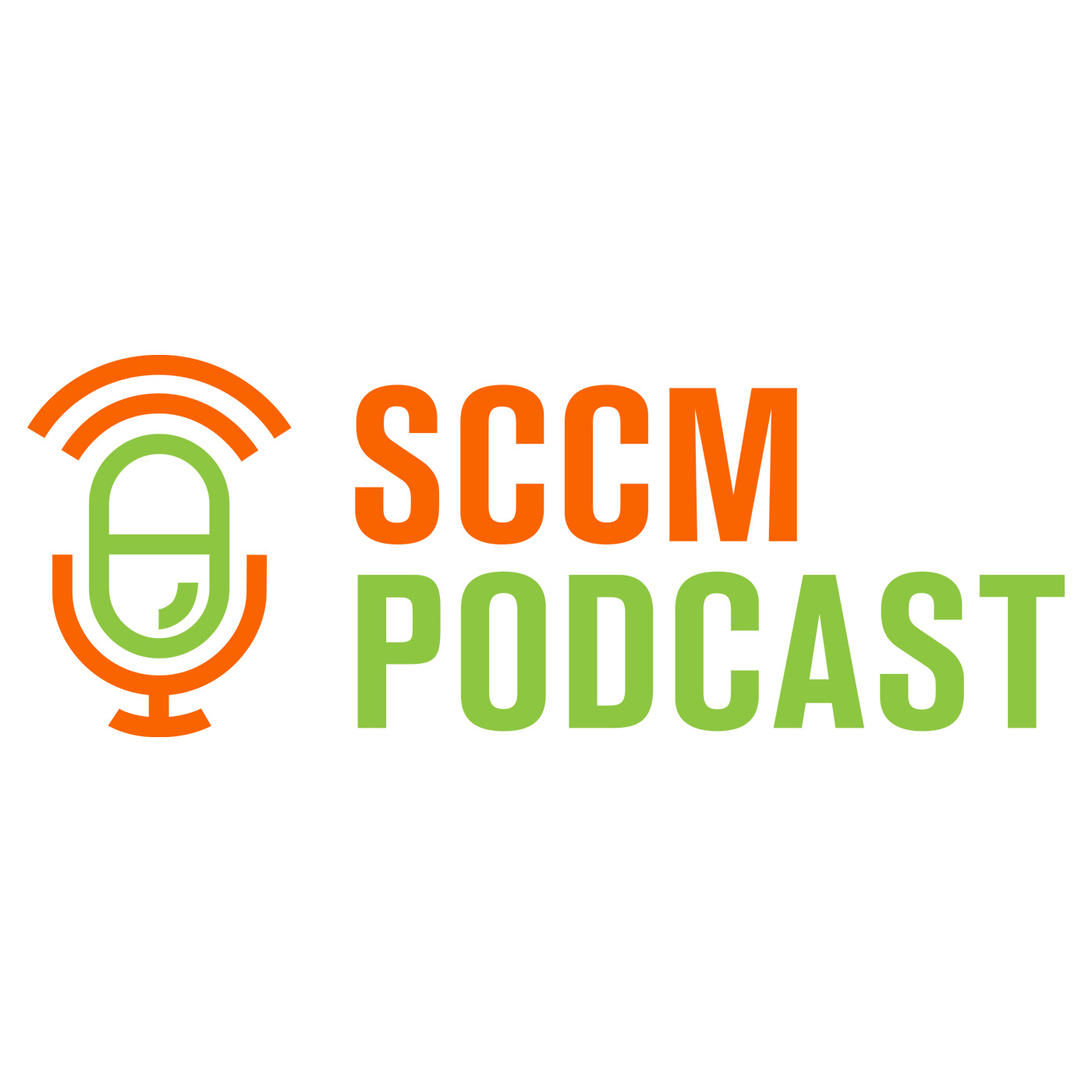

SCCM Podcast
Society of Critical Care Medicine (SCCM)
The Society of Critical Care Medicine (SCCM) Podcast features in-depth interviews with leaders in critical care. Experts discuss hot topics in intensive care with perspectives from all members of the critical care team. Guests include authors from SCCM’s peer-reviewed journals, Critical Care Medicine, Pediatric Critical Care Medicine, and Critical Care Explorations, as well as thought leaders within the field. This is a new and updated channel, formerly known as the iCritical Care Podcast All Audio Channel.
Episodes
Mentioned books

May 24, 2017 • 35min
SCCM Pod-VCCR5 Rumack-Matthew Nomogram and Acetaminophen Toxicity
Sean P. Kane, PharmD, BCPS, speaks with Nadia Awad, PharmD, BCPS about Rumack-Matthew nomogram and acetaminophen toxicity. In the episode, the toxidrome of acetaminophen overdose is outlined and the nuances (including clinical practice pearls) are discussed regarding the nomogram used to decide whether N-acetylcysteine is warranted for acetaminophen toxicity.

May 19, 2017 • 43min
SCCM Pod-341 Reflections on the ICU Liberation ABCDEF Bundle Improvement Collaborative
Ludwig Lin, MD, speaks with Brenda Pun, DNP, RN, ACNP, about the ICU Liberation ABCDEF Bundle Improvement Collaborative. Dr. Pun reflects upon Collaborative work, including origins and logistics of the project, team training and resource-sharing, and the importance of the interprofessional care model, as well as successes, challenges, and barriers to bundle implementation.

May 17, 2017 • 34min
SCCM Pod-VCCR4 Common Sedatives and Paralytics for Rapid Sequence Intubation
Sean P. Kane, PharmD, BCPS, speaks with Joseph Muench, PharmD, BCPS about airway pharmacology. In the episode, the most common sedatives and paralytics for rapid sequence intubation are discussed, including concepts regarding dosing, adverse effects, onset and duration of effect, and clinical pearls.

May 11, 2017 • 38min
SCCM Pod-VCCR3 Activated Charcoal in the Overdose Patient
Sean P. Kane, PharmD, BCPS, speaks with Frank Paloucek, PharmD, DABAT about the use of activated charcoal in the overdose patient. In the episode, nuances of activated charcoal including dosing, dosage forms, administration, and efficacy are discussed.

May 4, 2017 • 33min
SCCM Pod-340 Interview with Lifetime Achievement Award Winner Patrick Kochanek
Ranjit Deshpande, MD, speaks with Patrick Kochanek, MD, MCCM, about his plenary talk at the 46th Critical Care Congress in Honolulu, Hawaii, entitled The Brain and Hypothermia: From Aristotle to Targeted Temperature Management, the Good Stuff Keeps Coming Back.

Apr 25, 2017 • 27min
SCCM Pod-VCCR2 New Onset Atrial Fibrillation in Septic Shock
Sean P. Kane, PharmD, BCPS, speaks with Ishaq Lat, PharmD, about new onset atrial fibrillation in septic shock. In the epsiode, the issue of rate versus rhythm control is discussed as well as the need for anticoagulation among this patient population.

Apr 25, 2017 • 39min
SCCM Pod-VCCR1 Treatment Approaches for ACE Inhibitor-Induced Angioedema
Sean P. Kane, PharmD, BCPS, speaks with Craig Cocchio, PharmD, BCPS, about angiotensin-converting enzyme (ACE) inhibitor-induced angioedema. In the episode, a variety of treatment approaches for ACE inhibitor-induced angioedema are discussed, including fresh frozen plasma, ecallantide, icatibant, and conventional therapies for undifferentiated angioedema.

Apr 20, 2017 • 24min
SCCM Pod-339 Guidelines for Family-Centered Care in the ICU
Stressful decision making often falls to family members because most patients in the ICU are too ill to participate in decisions. Ranjit Deshpande, MD, speaks with Judy E. Davidson, DNP, RN, FAAN, FCCM, and J. Randall Curtis MD, MPH, about the Guidelines for Family-Centered Care in the Neonatal, Pediatric, and Adult ICU.

Apr 13, 2017 • 40min
SCCM Pod-338 Building Global Collaboration in Acute Care Research
Dr. Ludwig Lin, MD, speaks with John C. Marshall, MD, FRCSC, FACS, about his talk given at the 46th Critical Care Congress in Honolulu, Hawaii on, Building Global Collaboration in Acute Care Research.

Apr 6, 2017 • 22min
SCCM Pod-337 Clinical Practice Guidelines for Sustained Neuromuscular Blockade in the Adult Critically Ill Patient: 2016 Update
Dr. Todd Fraser, MD, speaks with Michael J. Murray, MD, PhD, FCCM, FCCP, about the article, Clinical Practice Guidelines for Sustained Neuromuscular Blockade in the Adult Critically Ill Patient, published in Critical Care Medicine.


